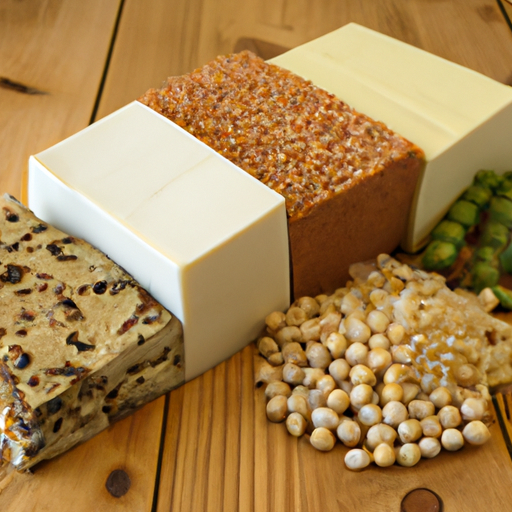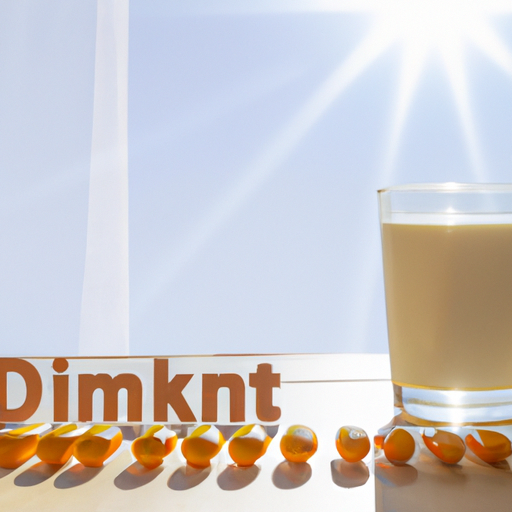
The Top Plant-Based Protein Sources for Fitness Enthusiasts
In a world where biceps seem to be measured in reps rather than centimeters, protein has become every fitness enthusiast's darling nutrient. But what if you’re vegan or just trying to cut back on a carnivorous diet? Fear not! Plant-based protein is here to save the day, and also your biceps.
This article is your ultimate guide to discovering the best plant-based protein sources for muscle-building and supporting your vegan fitness journey. Ready to dive in? Let’s flex some food facts!
Why Choose Plant-Based Protein?
Before we delve into the muscle-building superfoods, let's quickly chat about why choosing plant-based protein could be the secret weapon in your fitness arsenal.
- Heart Health: Plant-based diets are typically lower in saturated fats and cholesterol, which is excellent for your heart's growth (figuratively).
- Improved Digestion: Fiber-rich plant foods support healthy digestion, so no more grumbling tummies during your yoga session.
- Eco-Friendly: Producing plant-based foods generally requires fewer resources than animal farming, so you’re shredding not just toxins but also your carbon footprint.
The Top Plant-Based Protein Sources
Let’s dive into the tantalizing world of plant-based protein sources that will help you bulk up, tone down, and feel superhuman.
1. Lentils
Lentils are tiny but mighty legumes, boasting around 18 grams of protein per cooked cup. They are not just high in protein but also loaded with dietary fiber, iron, and potassium. Lentils are versatile; whether it’s in a soup, salad, or your grandma’s secret stew — they’ve got your protein needs covered.
2. Quinoa
This ancient grain is not just a hipster favorite but a complete protein, meaning it contains all nine amino acids. With 8 grams of protein per cooked cup, quinoa is perfect for those looking to pack in the muscle-building foods while keeping it gluten-free. Pair it with veggies or toss it in a buddha bowl — the possibilities are endless.
3. Black Beans
Black beans are a staple in vegan fitness diets, providing 15 grams of protein per cooked cup. They are affordable, easy to find, and loaded with antioxidants. Pro tip: Add them to your tacos, or make them into bean burgers for a protein-packed meal that even the most committed carnivore would drool over.
4. Chickpeas
Also known as garbanzo beans, these versatile legumes offer about 15 grams of protein per cooked cup. From hummus to falafels to stews, chickpeas are culinary chameleons. As an added benefit, they’re high in iron and fiber, really making them the ultimate vegan muscle-building allies.
5. Tofu
Ah, tofu. It’s the mother of all vegan protein sources with about 20 grams of protein per block. Made from soybeans, tofu is as versatile as you can get. Grill it, scramble it, bake it — the choice is yours! And remember, soaking it in soy sauce doesn’t count as double the protein.
6. Edamame
Speaking of soybeans, let’s not forget edamame. These little pods contain about 17 grams of protein per cup and are an excellent snack option. Just sprinkle them with a touch of sea salt and enjoy these protein-packed peas.
7. Hemp Seeds
Time to get hipsterish — hemp seeds are great for a plant-based diet. With 10 grams of protein per 3 tablespoons, they are perfect for sprinkling on salads, smoothies, or straight from the bag as a munch. Bonus: they also pack in some heart-healthy omega-3s.
Plant-Based Protein Myths: Busted
Like many things in life, plant-based diets come with myths that need busting. Let's debunk a few:
- Myth 1: Plant-based protein isn’t "complete" unless you eat them in pairs. Not true! While some plant proteins may lack certain amino acids, your body can mix and match throughout the day.
- Myth 2: You need animal protein to build muscle. Sorry, once again, plant-based warriors can indeed get swole.
Building a Balanced Vegan Fitness Diet
Balancing a vegan fitness diet isn't just about stuffing your face with seeds and legumes. Here's how to ensure your muscles get their fair share of proteins, carbs, and healthy fats:
Mix and Match
Combine various protein sources to ensure you're getting all essential amino acids. Think lentils and rice, or tofu stir-fry with quinoa. Variety is not just the spice of life; it's the spatula of balanced vegan diet.
Healthy Fats Matter
Don’t shy away from avocado toast or nuts. They're rich in good fats and can support your overall energy levels. Plus, they taste so darn good — which is no less important!
Stay Hydrated
Water is the unsung hero of any fitness regime. It lubricates joints, helps regulate body temperature, and carries nutrients to where they need to go. So, always keep that bottle handy.
Supplement Smartly
If you feel that your diet may be lacking, consider supplementing with a vegan protein powder. They can be an easy way to pack in some extra grams of the good stuff post-workout.
Conclusion: Chow Down on Plant Power
Shifting to a plant-based diet doesn’t mean compromising your fitness goals. By thoughtfully including these nutrient-dense plant-based protein sources in your diet, you’re well on your way to muscling up, sustainably.
So go forth, dear vegan fitness warrior, and embrace the legumes, grains, and seeds with all your might. Remember, your plants love you back in the most unselfish way possible: by making you healthier, stronger, and a tad more eco-friendly.
And if anyone wonders how you got such impressive gains on a vegan diet? Just smile and tell them the secret's in the lentils.
